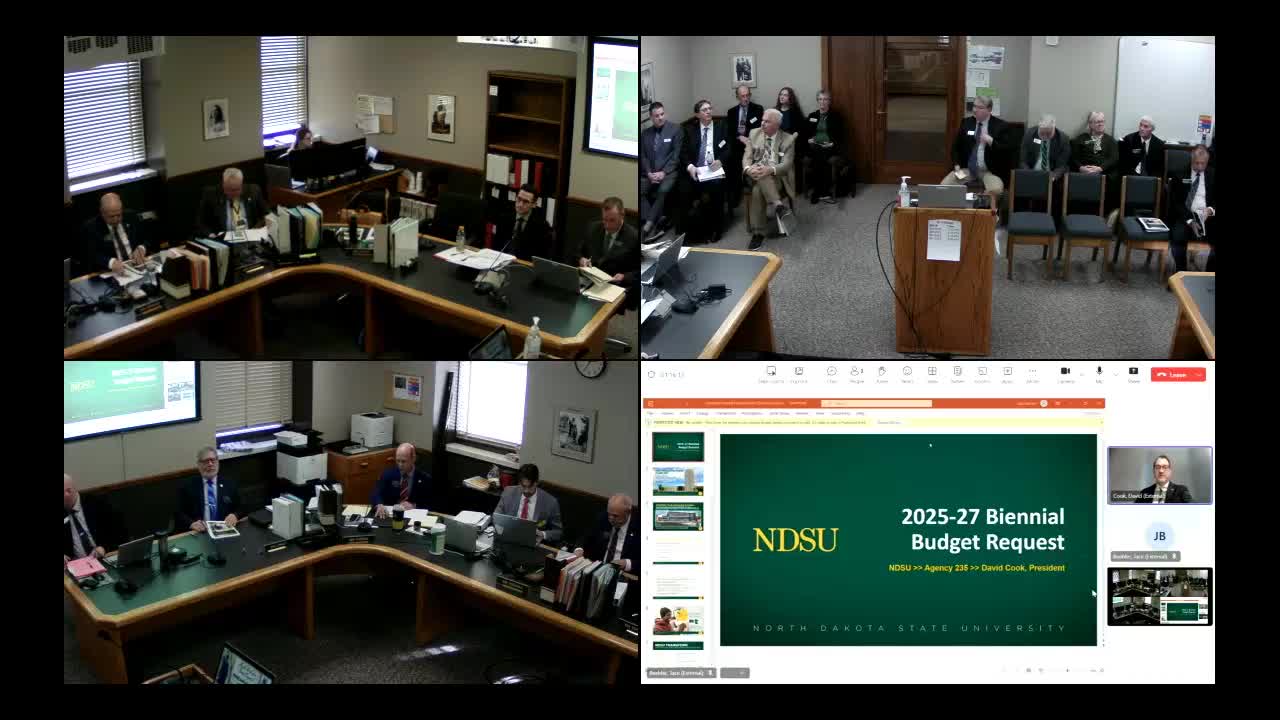NDSU president outlines "New Horizons" plan, seeks seed and program funding
Get AI-powered insights, summaries, and transcripts
Subscribe
Summary
NDSU President David Cook described a multi‑year restructuring and growth plan called New Horizons, reviewing recent cuts, fundraising success for an engineering complex and requests for targeted biennial investments in student success, precision agriculture/engineering, and health sciences.
David Cook, president of North Dakota State University, told the Appropriations - Education and Environment Division that NDSU has undergone deep internal restructuring to halt a decade‑long enrollment decline and to build a “foundation” for future growth.
Why it matters: NDSU is one of the state’s largest research and workforce producers. The president’s plan requests seed and program funding to accelerate retention, shorten time‑to‑degree and expand workforce‑aligned credentials in engineering, agriculture, nursing and allied health.
Cook reviewed enrollment and campus initiatives, thanked the legislature for prior support (including a tuition freeze and a $59 million legislative allocation toward an engineering complex), and described fundraising progress: “we've raised over $40,000,000,” he said, and highlighted a $25 million private gift that large donors and the university foundation delivered to the engineering project.
Cook reviewed a $4.8 million one‑time education transformation fund the legislature provided earlier and said that initial investments helped raise first‑year retention by nearly two percentage points. He proposed a three‑part New Horizons package for the coming biennium: $5 million for student success foundations (advising, learning assistants in STEM, career services and year‑round programming); $15 million to accelerate precision agriculture, engineering and materials‑science capacity; and $15 million for pharmacy, nursing and allied‑health workforce expansion. Cook asked the committee to consider the three asks as complementary, saying the $5 million seed enhances the other two investments’ prospects for success.
Cook also described NDSU Transform, the university’s internal cost and program restructuring effort: $24 million in budget reductions, about 80 FTE reductions, and elimination or teach‑out of roughly 29 academic programs identified as high‑cost/low‑enrollment. He emphasized that degree teach‑outs would preserve students’ ability to finish degrees but that some cuts and reorganization will be phased.
Cook noted institutional financial strength: Moody’s A3 bond rating and declining long‑term debt burdens tied to previous downtown and research‑park bonds that he expects to retire by the early 2030s. He summarized other priorities (high performance computing, research growth tied to large federal grants, and Indiana‑style industry task forces) and said NDSU will return with more granular program level detail in future hearings.
Ending: Cook said the New Horizons strategy aims to boost graduates by an estimated 35% over time by shortening time‑to‑degree, expanding year‑round and stackable credentials and strengthening industry partnerships; he asked the legislature to consider the biennial package as a coordinated investment.
